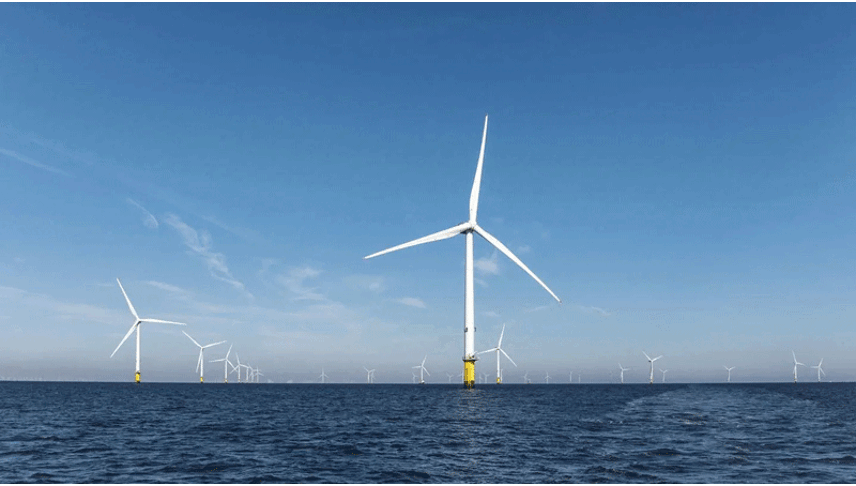Register for free and continue reading
Join our growing army of changemakers and get unlimited access to our premium content

Nearly 250 positions are slated for elimination in the upcoming months.
The plan, called the Action Plan for Nationally Significant Infrastructure Projects (NSIPs), applies to large projects relating to energy, transport, water, wastewater and waste. The Government has stated that it can enact the plan and speed up delivery while enhancing environmental standards rather than weakening them.
Between 2012 and 2021 there was a 65% increase in the time it took for projects to go through the NSIP process. The Energy Transitions Commission recently published research concluding that the average timeline for an offshore wind project in the UK is 12 years. The Commission believes that this could be reduced to 5.5 years with interventions to streamline planning and permitting, without any backsliding on environmental and social standards. The UK is notably aiming to host 50GW of offshore wind by 2050 and to also significantly build out its low-carbon hydrogen infrastructure in the same timeframe.
Under the new Plan, the Government has confirmed that a new ‘fast-track process’ will be piloted for selected projects. Projects subject to this process will have shorter statutory timelines set by the relevant Secretary of State.
A consultation on the fast-track process will be held this spring. At the same time, the Government will work to identify suitable projects. The first projects are set to benefit under trials of the process from this September. Developers will need to complete enhanced pre-application requirements to take part.
There are also several measures to speed up the delivery of all NSIPs more broadly. The plan promises a “more proportionate examination process for all projects”, plus more expert support during the pre-application process. So that this support can be offered locally, the Government will assess how much additional funding local authorities will need to grow and upskill their teams.
The Plan also details a new application service portal, to be rolled out over the course of 2023. Digitising the service and integrating the digital system should result in simpler and faster analysis.
As expected, the plan additionally confirms a review and update of National Policy statements to “set a clear, strategic direction”. These statements entail tests that NSIPs need to meet in terms of health, safety, environment, community and economy, but there have been concerns that they are not concise and modern enough.
The National Infrastructure Commission (NIC) was recently asked by the Government to review the statements in full. At present, a review is needed every five years. The NIC will also look into whether a more frequent analysis is needed.
Environmental Outcomes Reports
Crucially, the Government documents make it clear that it does not want to enter a race to the bottom on environmental standards to deliver more projects, more rapidly.
It is introducing a new Environmental Outcomes Report requirement for developers of NSIPs, under which, developers will need to evidence their contributions to legally binding targets such as those included in the Environment Bill and Environmental Improvement Plan. These cover factors such as biodiversity, air quality, water quality, soil health and waste.
This may prove controversial, with the Department for Housing, Communities and Levelling Up calling current environmental assessment processes “cumbersome”. It has touted a review of the protected sites and species policy framework, which could be an opportunity to improve standards – or weaken them.
The Government has stated that it will ensure that the NSIP process is “aligned with its wider environmental goals, such as reaching net-zero” by 2050. The lack of a strong net-zero ‘stress test’ for projects to date has been a bugbear for the green economy.
Green economy reaction
Responding to the news, RenewableUK’s environmental policy analyst Juliette Webb said: “We’re pleased that Ministers across four Government departments have recognised our key recommendations to reform the planning process as a matter of urgency, to enable much-needed renewable energy projects to go ahead faster.
“The current planning system moves at a glacial pace – it can take four or five years to get approval for an offshore wind farm. If we’re to cut people’s energy bills, boost Britain’s energy security and meet our net zero target, the Government must reduce unnecessary bureaucracy and streamline the way the system works to make it more agile and responsive. In particular, it’s good to see that Ministers have listened to industry on the need for early and meaningful engagement between project developers and the statutory bodies we work with, and a commitment to scale up the resources required within the planning system to make it work more efficiently, as this will enable us to deliver critical renewable infrastructure.
Webb added: “It’s also important to preserve safeguards that protect wildlife and ensure that the views of local communities are given due weight during the planning process.”


Please login or Register to leave a comment.